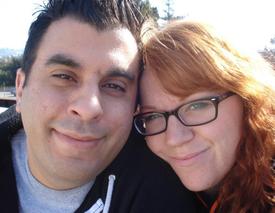Still struggling with this concept?!!??!?!

Ruger2506
Posts: 309 Member
Ok, so I think I've got it figured out.
So. A person has a BMR. If that person wants to loose weight, they consume a certain % of the total BMR calories to create a daily calorie deficit. This weight loss can be achieved sitting on the couch with no effort/exertion what so ever. Let's assume that calculated daily caloric intake is 1800 calories to loose weight.
If that person works out and burns 500 calories. They actually need to consume 2300 calories so their body doesn't enter into starvation mode. So basically the exercise is a wash in the greater scheme of things.
So, assume all this is correct. Exercise actually has little value in the weight loss process.
So why get up and exercise? Tell me what I'm missing from this list.
1. Cardio - to enhance and increase cardiac health and reduce the risk of stroke, heart attack, hypertension, etc.
2. Strength Training - To increase lean muscle mass.
a. For better physical appearance
b. For better self esteem.
c. To perform muscle intensive tasks with ease.
So. A person has a BMR. If that person wants to loose weight, they consume a certain % of the total BMR calories to create a daily calorie deficit. This weight loss can be achieved sitting on the couch with no effort/exertion what so ever. Let's assume that calculated daily caloric intake is 1800 calories to loose weight.
If that person works out and burns 500 calories. They actually need to consume 2300 calories so their body doesn't enter into starvation mode. So basically the exercise is a wash in the greater scheme of things.
So, assume all this is correct. Exercise actually has little value in the weight loss process.
So why get up and exercise? Tell me what I'm missing from this list.
1. Cardio - to enhance and increase cardiac health and reduce the risk of stroke, heart attack, hypertension, etc.
2. Strength Training - To increase lean muscle mass.
a. For better physical appearance
b. For better self esteem.
c. To perform muscle intensive tasks with ease.
0
Replies
-
you can eat more.0
-
you can eat more.
So that's the big advantage? If I want to go out and have some beers or eat out just work out and it's a wash?0 -
Cardio has health benefits all of its own... Yes you can lose weight without doing any, but that is not what this is all about. It's about being healthy...
Eating more is a bonus...0 -
You don't have to exercise to lose weight. You do need exercise for overall health and to tone up.0
-
you can eat more.
So that's the big advantage? If I want to go out and have some beers or eat out just work out and it's a wash?
Not quite. While you can lose weight just by cutting calories, its really not benefitting you. If you don't exercise, especially some form of strength training, you will basically shrink. You will look exactly the same, just on a smaller scale. You need to ask yourself if you are content with that, or if you really want to transform your shape.0 -
Yes, you can eat more.
And the more muscle your body has, the more time your body spends burning fat on it's own. I guess your choice is A) Be fit with working out and eating right, or eat right and lose weight but be skinny-fat. Muscle WINS in appearance any day of any week! 0
eat right and lose weight but be skinny-fat. Muscle WINS in appearance any day of any week! 0 -
When you get closer to your Goal, you're seriously gonna want those extra exercise calories.
Just do it. Your body is designed to move. Use it or lose it.0 -
Self esteem yes but also my outlook changes.Working out makes me more positive,i feel better about my day,dramas dont seem so bad,all over im calmer,more centred and happier.0
-
The point of exercising is so you don't lose muscle mass, which will drastically effect your appearance. Look up pictures of people at the same height and weight, except one has exercised to lose weight, and the other just cut calories. The one who exercised is toned, and firmer, and the other is "skinny fat", where they look flabby, soft, etc.0
-
Here is some more literature that I found that shows a benefit to strength training.
"Get exercise. Physical activity is very important for burning calories, lowering your "set point" (the weight your body gravitates toward), and increasing your metabolic level (rate of burning calories), even while you are not exercising. We recommend burning at least 300 calories daily through exercise.
Raise your metabolic rate. A primary factor in determining your metabolic rate -- the rate at which you burn calories -- is the number of mitochondria in cells. Mitochondria are tiny energy factories that fuel every cell. The more you have, the more energy you will burn, which will keep you leaner. Unfortunately, we cannot simply take a mitochondria supplement. However, fat cells have very few mitochondria because fat cells store energy rather than burn it, whereas muscle cells have many because they need energy to perform their job. So as you build muscle cells from a regular exercise program, you increase your mitochondria, thereby permanently raising your metabolic rate, even when you are not exercising."0 -
First, your estimated BMR, or basal metabolic rate, is an estimate of the number of calories you would burn if you were completely inactive, e.g. if you were in a coma and just laying there. Your total daily energy expenditure, or TDEE, is how many calories you burn in the normal course of a day (dressing, working, etc.). In order to lose weight, you need to eat a deficit relative to your TDEE, for example, if you want to lose a pound per week, you need to eat roughly 500 calories fewer than your TDEE.
Exercise may not be necessary in order to lose weight, but it does have a number of other benefits, including improved health, many people also enjoy better moods, a sense of satisfaction, and feeling stronger in everyday life. Exercising regularly during the weight loss process, particularly exercises that build strength, will mean that you don't lose as much muscle while losing weight. A lot of people also enjoy that they can eat more and still maintain a caloric deficit if they exercise--personally, I find exercise makes me very hungry, so the "extra" calories feel less like a luxury, and more like an immediate need.0 -
The more muscle you have on your body, the more calories you burn by doing nothing. So working out does pay off. With only flab on your body, it will take a much longer time to lose weight than if you have muscle.
I am not sure about the scientific end of this, but I know it works, because when I started this journey two months ago, I was flabby and for the first month lost nothing at all. This month I have lost ten pounds. I work out hard at the gym. I eat all my exercise calories back. I am always full.0 -
Oh I do work out and will continue to do so. I know the benefits of it.
I'm just trying to wrap my brain around the weight loss, proper diet, exercise thing. It's not as simple as I thought it may be. Of course I love research and having an in depth understanding of concepts.0 -
you need to remember it is not just the calories burned at the time but the increase in metabolism. Also muscles burn more calories in a resting body than fat. So a person weighing 200 lbs and it is all fat won't burn as many calories as a 200 lb body builder when it is all muscle. The calculations they use here are general but that is why they ask if you are active or not. Active people tend to have less fat at their weight. and yes you get to eat more because of the calories burned.0
-
Ok, so I think I've got it figured out.
So. A person has a BMR. If that person wants to loose weight, they consume a certain % of the total BMR calories to create a daily calorie deficit. This weight loss can be achieved sitting on the couch with no effort/exertion what so ever. Let's assume that calculated daily caloric intake is 1800 calories to loose weight.
The % should come off your TDEE NOT your BMR.
Your BMR is what your body needs to function without doing anything else.
Your TDEE is your Total Daily Energy Expenditure -- or how much your body needs to do all the things you do each day ontop of general functions.
I get up and exercise because it allows me to eat more, it makes me feel good, my body will look better because I've exercised and hopefully it'll help reduce my blood pressure.
Also, the muscle mass I gain from strength training will help me burn more calories to lose weight faster.0 -
Your BMR is the least you can eat. Your TDEE is basically a calculation of how many calories you would need to consume to maintain your current weight.
Why work out? From what I have read building muscle can help aid in fat loss. What you are describing (sitting and eating less) is overall loss of weight, both fat and muscle. This can result in the dreaded skinny fat - you're not overweight, but you don't look as good as you could. Additionally, this method only focuses on losing pounds and not getting healthy (which may be a huge first step for people who are very overweight and not ready to start moving). If you just want to be skinny, don't move more and lose your muscle along with fat. If you want to be healthy and lead an active lifestyle, move more and eat slightly less. It's really a matter of wanting to lose pounds, or really wanting to just lose fat.0 -
Here is some more literature that I found that shows a benefit to strength training.
"Get exercise. Physical activity is very important for burning calories, lowering your "set point" (the weight your body gravitates toward), and increasing your metabolic level (rate of burning calories), even while you are not exercising. We recommend burning at least 300 calories daily through exercise.
Raise your metabolic rate. A primary factor in determining your metabolic rate -- the rate at which you burn calories -- is the number of mitochondria in cells. Mitochondria are tiny energy factories that fuel every cell. The more you have, the more energy you will burn, which will keep you leaner. Unfortunately, we cannot simply take a mitochondria supplement. However, fat cells have very few mitochondria because fat cells store energy rather than burn it, whereas muscle cells have many because they need energy to perform their job. So as you build muscle cells from a regular exercise program, you increase your mitochondria, thereby permanently raising your metabolic rate, even when you are not exercising."
i guess i'll add.... ST i would always make a must.. cardio is something you do if you want to eat an extra chip.0 -
This could be bro-science, but I heard exercise is more effective at getting visceral fat and preventing its re-occurrence by reducing stress and other stuff.0
-
So my TDEE is between 3800-4200 calories. My daily target on MFP is 2300 calories counting my 500 calories burnt via cardio. It doesn't take my strength training calories into account. So by that math MFP is telling me I'm at a 1500-1900 caloric deficit (according to my TDEE).0
-
0
-
i guess i'll add.... ST i would always make a must.. cardio is something you do if you want to eat an extra chip.
Well, cardio adds more benefit than that. I can assure you I've seen many a patients who would have drastically benefitted from having a daily cardio routine. Heart attack patients recover much more rapidly when they have been following a good cardio program. Same thing for stroke patients. A solid cardio program decreases a person systemic blood pressure, increases vascular elasticity and decreases pulse pressure.0 -
i guess i'll add.... ST i would always make a must.. cardio is something you do if you want to eat an extra chip.
Well, cardio adds more benefit than that. I can assure you I've seen many a patients who would have drastically benefitted from having a daily cardio routine. Heart attack patients recover much more rapidly when they have been following a good cardio program. Same thing for stroke patients. A solid cardio program decreases a person systemic blood pressure, increases vascular elasticity and decreases pulse pressure.
well of course you would do that if you are at a risk of heart related problems.. but at the same time.. ST benefits your heart a ton also... after squatting 300+ for reps/sets .. my heart is going just as hard as if i just ran around the world.0 -
Cardio helps me lose weight beyond the calories burned. Lots of anecdotal evidence that suggests a good cardio workout keeps your metabolism burning a bit hotter for hours after your workout ends.
Your lungs improve their function, so you can breath easier. Your heart is stronger, and has to work less to pump blood through your body. As a guy, increase blood flow has other benefits that as I get older, I am happy to maintain 0
0 -
I don't understand why you would want to eat more. I started at 410 before I joined MFP. The first 20 lbs was the hardest without this help here.
What makes this easy to me is seeing with my own eyes calorie equals = so much food. Meaning not guessing at what something weighs and doesn't weigh.
This is how I have managed to get to about 371 today. First time ever losing weight.
VERY IMPORTANT INFO: I cannot exercise. Have a very bad heart, and arthritis is destroying my ability to do a lot things needed in every day life.
For me.....no exercise has equaled close to a 40 pound weight loss.
Good luck in your program....0 -
You sound like you might be better off if you just set your profile to maintain your current weight and then use your calorie burn as your deficit. Less to wrap your head around if you are eating the same number of calories per day...0
-
exercise promotes muscle growth. 1 lb. of muscle takes up less room than 1 lb. of fat. Fat is fluffier, so to speak. If you are 150 lbs. of muscle you look a helluva lot better than 150 lbs. of fat. You will also wear significantly small clothes.
exercise promotes serotonin production and improves mood.
exercise promotes better looking skin, hair, nails, and increases your money-earning potential.
well, not that last one. well, maybe. you be the judge.0 -
I don't understand why you would want to eat more. I started at 410 before I joined MFP. The first 20 lbs was the hardest without this help here.
What makes this easy to me is seeing with my own eyes calorie equals = so much food. Meaning not guessing at what something weighs and doesn't weigh.
This is how I have managed to get to about 371 today. First time ever losing weight.
VERY IMPORTANT INFO: I cannot exercise. Have a very bad heart, and arthritis is destroying my ability to do a lot things needed in every day life.
For me.....no exercise has equaled close to a 40 pound weight loss.
Good luck in your program....
Someone at 371 and someone at 150 are in entirely different circumstances. The more body fat you have, the greater a deficit you can run. Careful with your advice.0 -
When you lose weight you lose both muscle and fat. The fat is good the muscle is bad. The main goal of exercising is to prevent the muscle loss and maximize the fat loss.
So for example you have 2 people who weigh 200 lbs. They both have a bodyfat percentage of 25%. So that means that they have 50 pounds of fat and 150 pounds of not fat (lean body mass).
Envision the following scenario (the numbers are made up and likely exaggerated but you get the point):
Over the course of time they both lose 30 lbs. One guy exercises regularly and the other one doesn't.
The guy who exercises loses 29 lbs of fat and 1 lb of muscle. That means that he weighs 170 lbs with a bodyfat percentage of 12% with a lean body mass of 149lbs. So now that he is a perfect weight he can go back to eating a decent diet and he will be fine.
The other guy loses 20lbs of fat and 10 lbs of muscle. That means that he weighs in with a bodyfat percentage of 18% (not to shabby ) with a lean body mass of 140 lbs. But because he has significantly less muscle then the first guy when he goes back to regular eating and maintenance he will need to eat for a man with 140lbs of lean mass which means he will have to take in significantly less calories to maintain his weight loss.
What happens many times is that a person will go back to their old eating patterns. Unfortunately they have less muscle then they did before and so they gain the weight back and they gain it quicker then the first time and they gain more weight because their are used to (over)eating for a guy with 150lbs lean body mass instead of the 140lbs that they now are. Also when they get to 200 lbs again they will have a bodyfat percentage of 30% - meaning they are significantly fatter even though they weigh the same.
So they go on a diet again and don't exercise again and they lose the 30lbs again, but this time they lose 5 lbs of muscle - so now their bodyfat percentage is 21% with a lean body mass is 135lbs. And it repeats over and over again like a yo-yo.0 -
TDEE is themost important number to have.
Know it and you can lose/gain/maintain weight.
BMR is the number to avoid....unless you dont like lean mass and want to be miserable.
Find your Body Fat% first.
http://www.fat2fitradio.com/tools/
Do the military BF tool.
Then the BMR tool.
The BMR tool will give EXACT calories to eat depending on your activity.
Add 20% to get your TDEE.
Always eat below your TDEE and always above BMR and youll do just fine.0 -
I would like to add one more thing about cardio. I have a soft spot in my heart for chasing mountain goat, moose, sheep and elk over the top of some 9,000+ ft mountain top. I can assure you that I wouldn't be able to do such a thing without many hours of cardio under my belt.
That and I really want to water ski again this summer. I'll need strength for that.
Damn sedentary lifestyle!0
This discussion has been closed.
Categories
- All Categories
- 1.4M Health, Wellness and Goals
- 398.2K Introduce Yourself
- 44.7K Getting Started
- 261K Health and Weight Loss
- 176.4K Food and Nutrition
- 47.7K Recipes
- 233K Fitness and Exercise
- 462 Sleep, Mindfulness and Overall Wellness
- 6.5K Goal: Maintaining Weight
- 8.7K Goal: Gaining Weight and Body Building
- 153.5K Motivation and Support
- 8.4K Challenges
- 1.4K Debate Club
- 96.5K Chit-Chat
- 2.6K Fun and Games
- 4.8K MyFitnessPal Information
- 13 News and Announcements
- 21 MyFitnessPal Academy
- 1.6K Feature Suggestions and Ideas
- 3.2K MyFitnessPal Tech Support Questions













